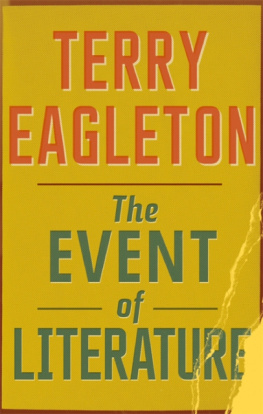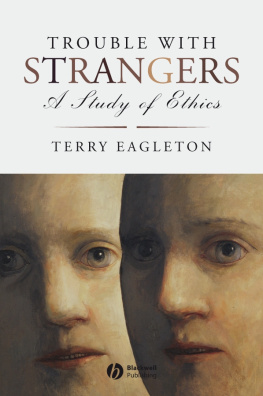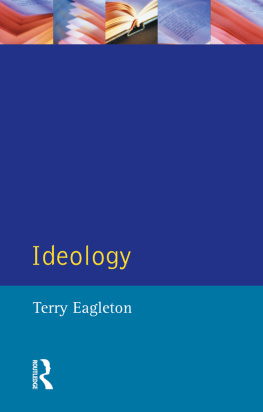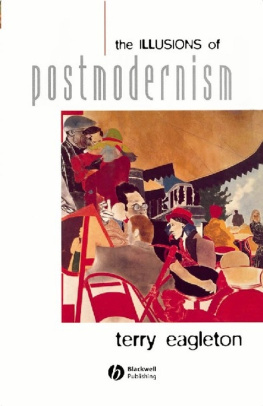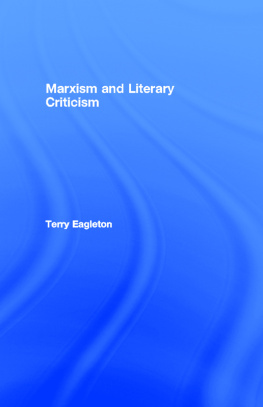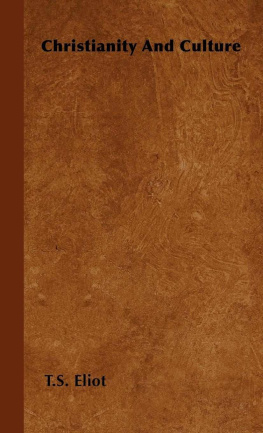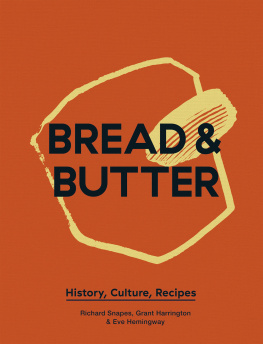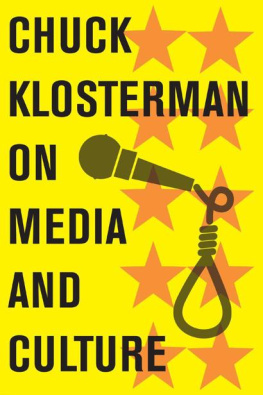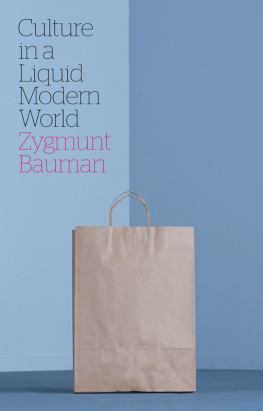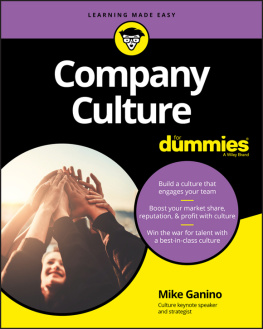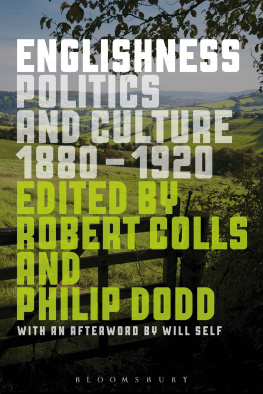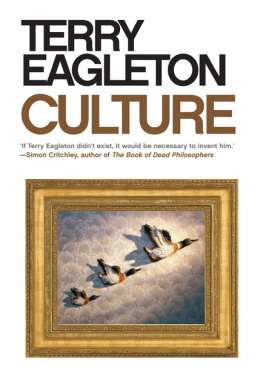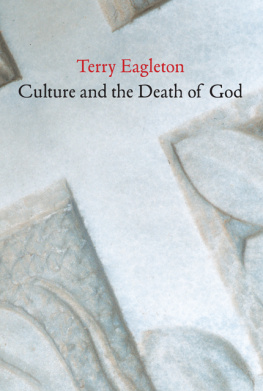
Blackwell Manifestos
In this new series major critics make timely interventions to address important concepts and subjects, including topics as diverse as, for example: Culture, Race, Religion, History, Society, Geography, Literature, Literary Theory, Shakespeare, Cinema, and Modernism. Written accessibly and with verve and spirit, these books follow no uniform prescription but set out to engage and challenge the broadest range of readers, from undergraduates to postgraduates, university teachers and general readers all those, in short, interested in ongoing debates and controversies in the humanities and social sciences.
Published
The Idea of Culture
Terry Eagleton
The Future of Christianity
Alister E. McGrath
Reading After Theory
Valentine Cunningham
21st-Century Modernism
Marjorie Perloff
The Future of Theory
Jean-Michel Rabat
True Religion
Graham Ward
Inventing Popular Culture
John Storey

2000 by Terry Eagleton
BLACKWELL PUBLISHING
350 Main Street, Malden, MA 02148-5020, USA
108 Cowley Road, Oxford OX4 1JF, UK
550 Swanston Street, Carlton, Victoria 3053, Australia
The right of Terry Eagleton to be identified as the Author of this Work has been asserted in accordance with the UK Copyright, Designs, and Patents Act 1988.
All rights reserved. No part of this publication may be reproduced, stored in a retrieval system, or transmitted, in any form or by any means, electronic, mechanical, photocopying, recording or otherwise, except as permitted by the UK Copyright, Designs, and Patents Act 1988, without the prior permission of the publisher.
First published 2000
12 2009
Library of Congress Cataloging-in-Publication Data
Eagleton, Terry, 1943
The idea of culture / Terry Eagleton.
p. cm. (Blackwell manifestos)
Includes bibliographical references and index.
ISBN: 9780631219668
1. Culture. 2. Postmoderism. 3. Civilization. 4. Nature. I. Title. II. Series.
HM621 .E16 2000
306dc21
99056273
A catalogue record for this title is available from the British Library.
For further information on Blackwell Publishing, visit our website: www.blackwellpublishing.com
For Edward Said
Versions of Culture
Culture is said to be one of the two or three most complex words in the English language, and the term which is sometimes considered to be its opposite nature is commonly awarded the accolade of being the most complex of all. Yet though it is fashionable these days to see nature as a derivative of culture, culture, etymologically speaking, is a concept derived from nature. One of its original meanings is husbandry, or the tending of natural growth. The same is true of our words for law and justice, as well as of terms like capital, stock, pecuniary and sterling. The word coulter, which is a cognate of culture, means the blade of a ploughshare. We derive our word for the finest of human activities from labour and agriculture, crops and cultivation. Francis Bacon writes of the culture and manurance of minds, in a suggestive hesitancy between dung and mental distinction. Culture here means an activity, and it was a long time before the word came to denote an entity. Even then, it was probably not until Matthew Arnold that the word dropped such adjectives as moral and intellectual and came to be just culture, an abstraction in itself.
Etymologically speaking, then, the now-popular phrase cultural materialism is something of a tautology. Culture at first denoted a thoroughly material process, which was then metaphorically transposed to affairs of the spirit. The word thus charts within its semantic unfolding humanitys own historic shift from rural to urban existence, pig-farming to Picasso, tilling the soil to splitting the atom. In Marxist parlance, it brings together both base and superstructure in a single notion. Perhaps behind the pleasure we are supposed to take in cultivated people lurks a race-memory of drought and famine. But the semantic shift is also paradoxical: it is the urban dwellers who are cultivated, and those who actually live by tilling the soil who are not. Those who cultivate the land are less able to cultivate themselves. Agriculture leaves no leisure for culture.
The Latin root of the word culture is colere, which can mean anything from cultivating and inhabiting to worshipping and protecting. Its meaning as inhabit has evolved from the Latin colonus to the contemporary colonialism, so that titles like Culture and Colonialism are, once again, mildly tautological. But colere also ends up via the Latin cultus as the religious term cult, just as the idea of culture itself in the modern age comes to substitute itself for a fading sense of divinity and transcendence. Cultural truths whether high art or the traditions of a people are sometimes sacred ones, to be protected and revered. Culture, then, inherits the imposing mantle of religious authority, but also has uneasy affinities with occupation and invasion; and it is between these two poles, positive and negative, that the concept is currently pitched. It is one of those rare ideas which have been as integral to the political left as they are vital to the political right, and its social history is thus exceptionally tangled and ambivalent.
If the word culture traces a momentous historical transition, it also encodes a number of key philosophical issues. Within this single term, questions of freedom and determinism, agency and endurance, change and identity, the given and the created, come dimly into focus. If culture means the active tending of natural growth, then it suggests a dialectic between the artificial and the natural, what we do to the world and what the world does to us. It is an epistemologically realist notion, since it implies that there is a nature or raw material beyond ourselves; but it also has a constructivist dimension, since this raw material must be worked up into humanly significant shape. So it is less a matter of deconstructing the opposition between culture and nature than of recognizing that the term culture is already such a deconstruction.
In a further dialectical turn, the cultural means we use to transform nature are themselves derived from it. The point is made rather more poetically by Polixenes in Shakespeares The Winters Tale:
Yet nature is made better by no mean
But nature makes that mean; so over that art,
Which you say adds to nature, is an art
That nature makes This is an art
Which does mend nature change it rather, but
The art itself is nature.
(Act IV, sc. iv)
Nature produces culture which changes nature: it is a familiar motif of the so-called Last Comedies, which see culture as the medium of natures constant self-refashioning. If Ariel in The Tempest is all airy agency and Caliban all earthy inertia, a more dialectical interplay of culture and nature can be found in Gonzalos description of Ferdinand swimming from the wrecked ship:
Sir, he may live;
I saw him beat the surges under him,
And ride upon their backs; he trod the water,
Whose enmity he flung aside, and breasted
The surge most swoln that met him; his bold head
Bove the contentious waves he kept, and oared
Himself with his good arms in lusty stroke
To th shore
(Act II, sc. i)
Next page

